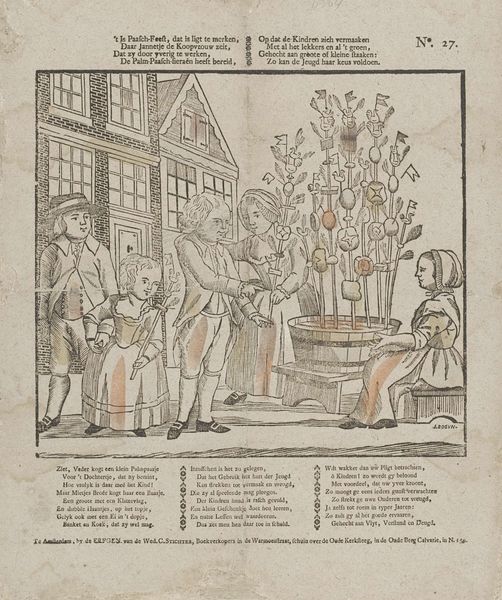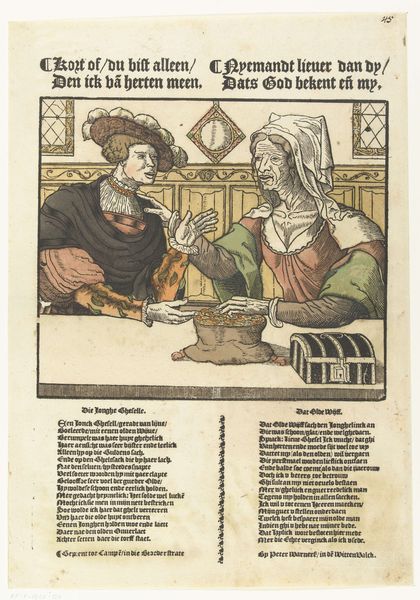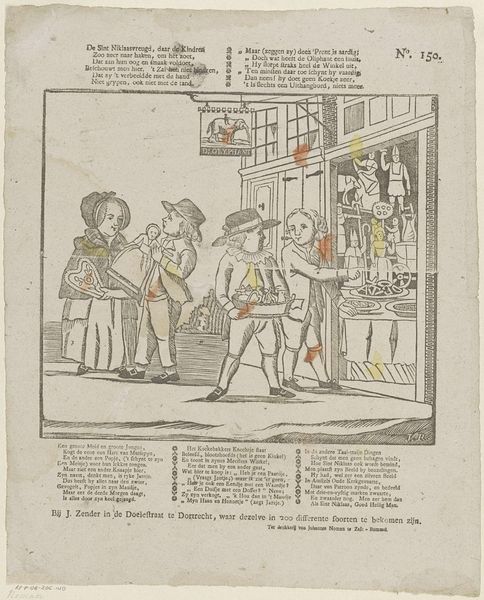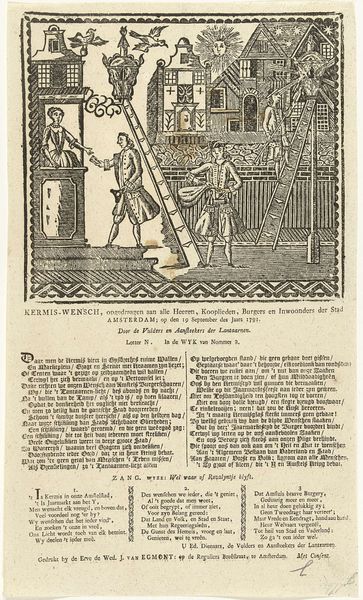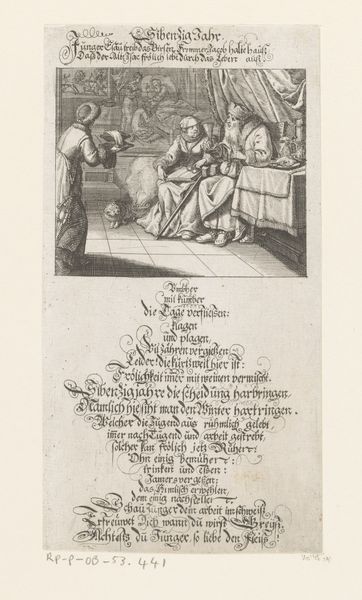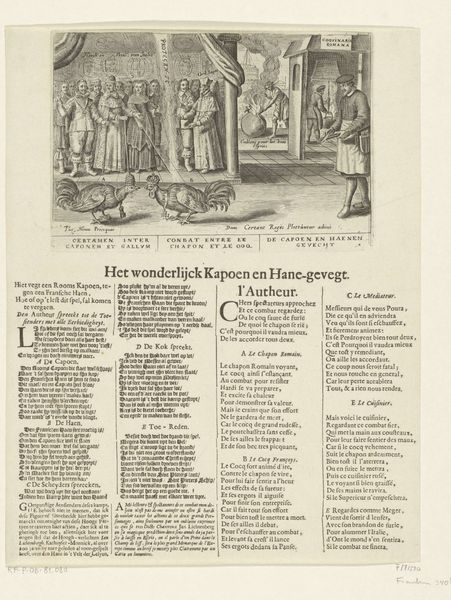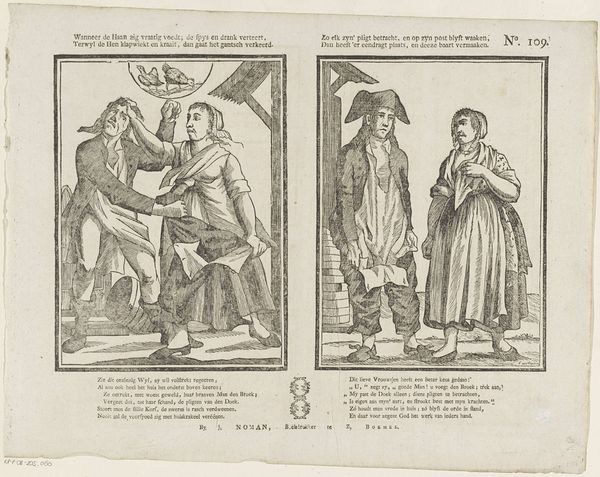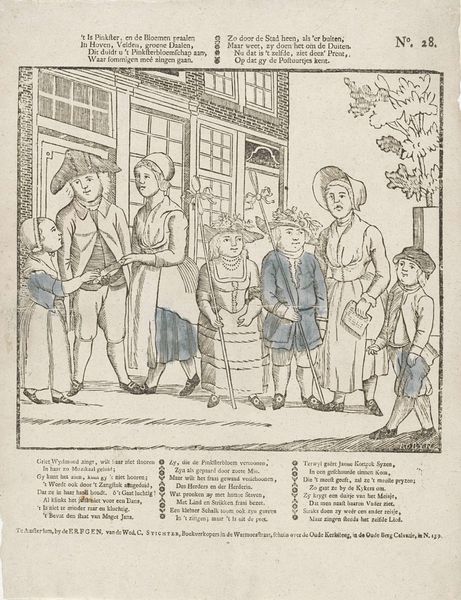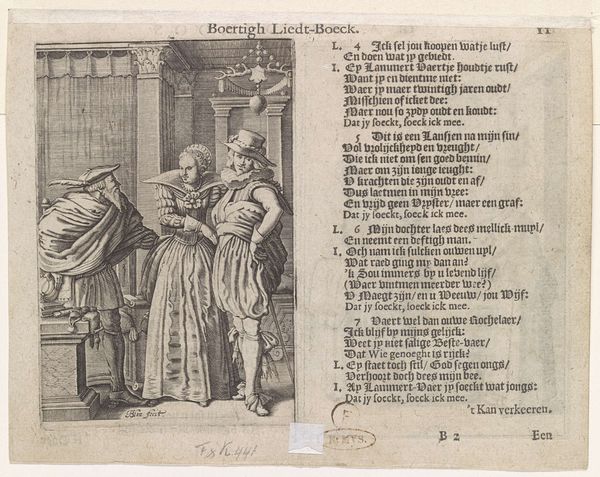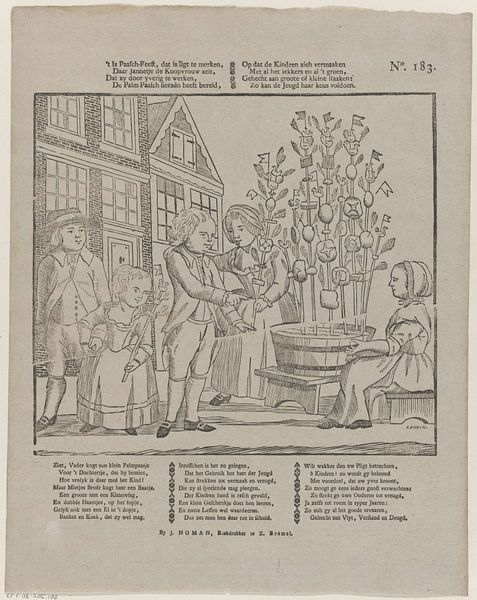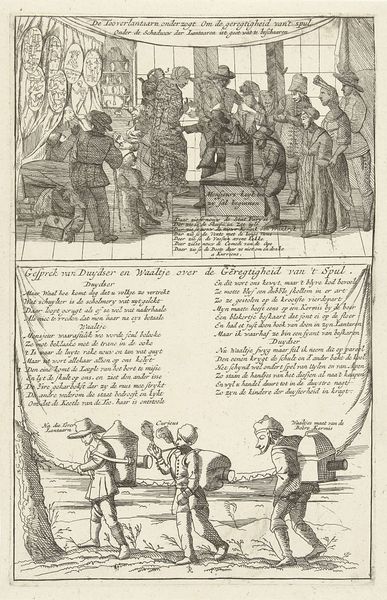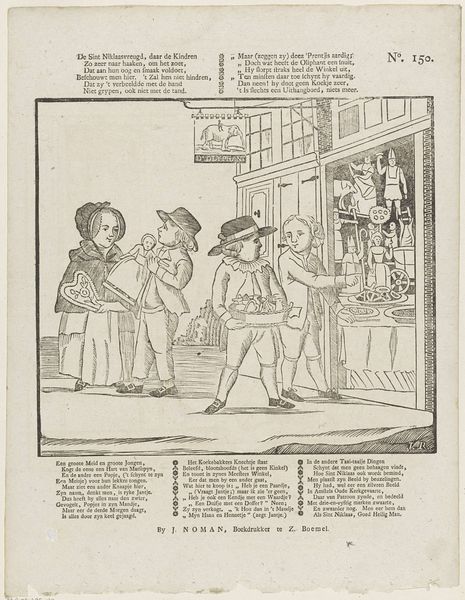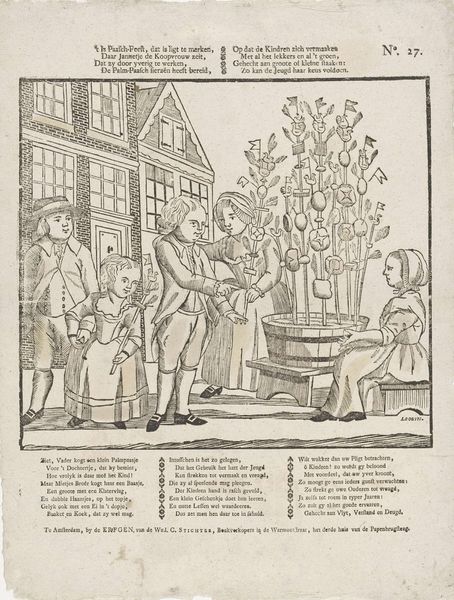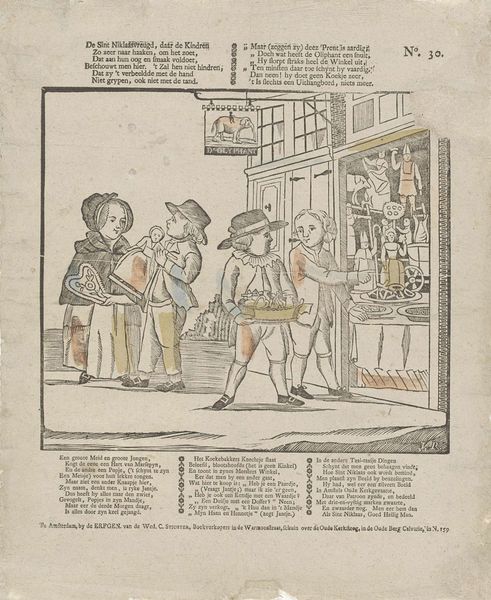
Neerlands vreugdedagen, / Of de feestviering van het plechtig trouwverbond van Z. K. H. Willem Frederik (...) 1814 - 1830
0:00
0:00
print, engraving
#
allegory
#
neoclassicism
# print
#
romanticism
#
history-painting
#
engraving
Dimensions: height 392 mm, width 325 mm
Copyright: Rijks Museum: Open Domain
This print, titled "Neerlands Vreugdedagen", or "Netherlands Days of Joy," was created by Barend Koene in 1816 using etching, a printmaking technique. Etching involves coating a metal plate with a waxy, acid-resistant material. The artist then scratches an image into this coating, exposing the metal. When dipped in acid, the exposed lines are eaten away, creating grooves. Ink is then applied to the plate, filling these grooves, and the image is transferred to paper through a press. The texture of the paper itself, and the subtle variations in ink density, contribute to the overall aesthetic. Koene was a book printer in Amsterdam, so this etching would have been one of many reproductions. This reproductive process allowed for widespread dissemination of the image and of the political message it conveys. The very act of printing ties it to wider social issues of labor, politics, and consumption, reflecting the amount of work involved in its production, and its intent to generate support for the royal family through visual propaganda.
Comments
No comments
Be the first to comment and join the conversation on the ultimate creative platform.
